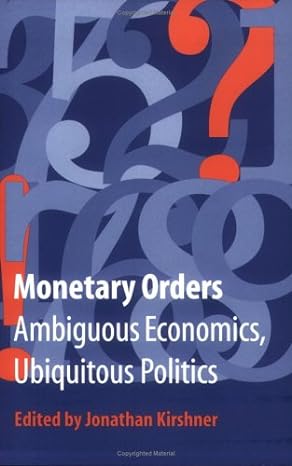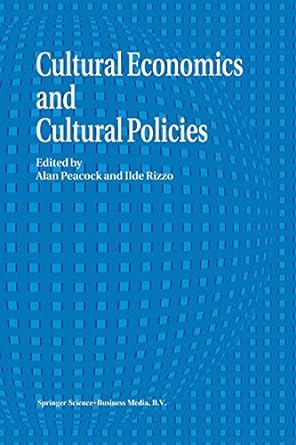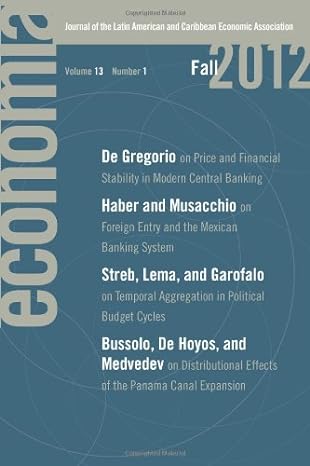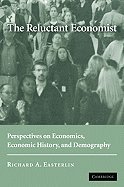Go back


Monetary Orders Ambiguous Economics Ubiquitous Politics(1st Edition)
Authors:
Jonathan Kirshner

Cover Type:Hardcover
Condition:Used
In Stock
Include with your book
Free shipping: April 04, 2024Popular items with books
Access to 3 Million+ solutions
Free ✝
Ask 10 Questions from expert
200,000+ Expert answers
✝ 7 days-trial
Total Price:
$0
List Price: $57.00
Savings: $57(100%)
Book details
ISBN: B004JZX2LQ
Book publisher: Cornell University Press (December 23, 2002)
Get your hands on the best-selling book Monetary Orders Ambiguous Economics Ubiquitous Politics 1st Edition for free. Feed your curiosity and let your imagination soar with the best stories coming out to you without hefty price tags. Browse SolutionInn to discover a treasure trove of fiction and non-fiction books where every page leads the reader to an undiscovered world. Start your literary adventure right away and also enjoy free shipping of these complimentary books to your door.
Monetary Orders Ambiguous Economics Ubiquitous Politics 1st Edition Summary: Wherever there is money, there is money politics-a subject demanding ever greater attention at a time when monetary policies lead and the real economy follows. A principal defining characteristic of the contemporary global economy, Jonathan Kirshner contends, is the rise and preeminence of monetary phenomena—international financial crises, Central Bank Independence and inflation fighting, the creation of the euro, and monetary reform in emerging economies, to name only a few. Moreover, unlike most debates in political economy (such as those regarding trade policy), which are generally recognized as political, monetary phenomena and macroeconomic policies are typically represented as expressly apolitical. In Monetary Orders, a distinguished group of scholars explores the inescapable political origins of choices about money. The essays in Monetary Orders each address a specific issue or puzzle relating to money and its management. Their authors focus on markedly disparate cases but share a common for most policy choices about money, market forces and economic logic can rule out certain options, but are indeterminate in explaining why one policy rather than another will be chosen. Ultimately, political factors are essential to explain fundamental and consequential choices about money. Rawi Abdelal, Harvard Business School Mark Blyth, Johns Hopkins University Michele Chang, Colgate University Francis Gavin, University of Texas, Austin Ilene Grabel, University of Denver William Grimes, Boston University Eric Helleiner, Trent University Jonathan Kirshner, Cornell University Hector Schamis, Cornell University David Stasavage, London School of Economics Hongying Wang, Syracuse University
Customers also bought these books
Frequently Bought Together
Top Reviews for Books
Nicole DiBlasio
( 5 )
"Delivery was considerably fast, and the book I received was in a good condition."










